Eisenhower Urges Israel to Adhere to U.N. Resolutions
In a nationally televised address to the American people, President Dwight Eisenhower discusses the tense situation in the Middle East in the aftermath of the October 1956 Suez War.

In a nationally televised address to the American people, President Dwight Eisenhower discusses the tense situation in the Middle East in the aftermath of the October 1956 Suez War.

August 26, 1955 Secretary of State John Foster Dulles delivers a speech to the Council on Foreign Relations that points to the Eisenhower administration’s new plan to launch covert discussions between Israeli Prime Minister David…

Two Israeli paratrooper platoons made up of approximately fifty IDF soldiers storm an Egyptian army camp in Gaza. The raid is a reprisal for continued fedayeen (Palestinian militants) attacks against Israeli civilians.
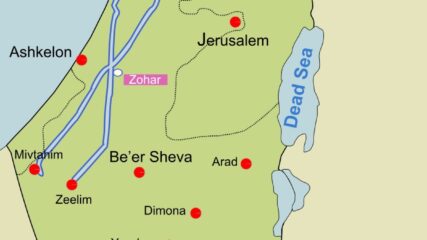
September 2, 1953 Israel starts work on a project to divert some of the water of the Jordan River at the B’not Yaakov (Daughters of Jacob) Bridge in the north of the state for use…

May 11, 1953 U.S. Secretary of State John Foster Dulles arrives in Cairo at the start of a 2½-week fact-finding trip to Egypt, Israel, Jordan, Syria, Lebanon, Iraq, India, Pakistan, Turkey and Libya. Dulles emphasizes…
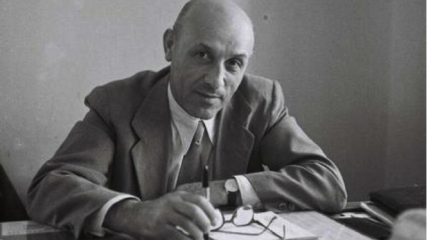
Created in 1920 to serve as a neutral, independent trade union representing all Jewish workers in Palestine, the Histadrut had grown to 503,000 members by 1953, representing approximately 75% of the country’s workers.
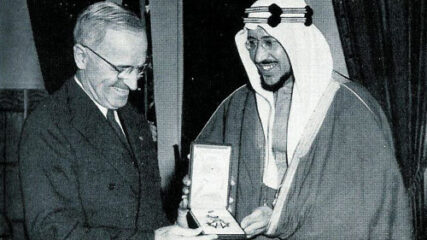
Shaikh Yusuf Yassin, Saudi Arabia’s Deputy Foreign Minister, states that “Arab states would never agree to any working relationship with Israel.”
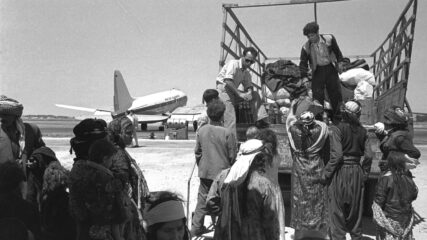
March 3, 1950 The Iraqi government retracts a policy banning emigration to move to Israel, on the condition that Jews give up their Iraqi citizenship when they leave the country. In addition, those who previously…
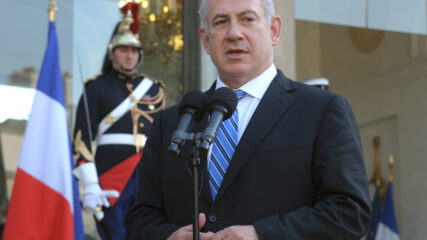
Benjamin Netanyahu, the ninth and current Prime Minister of Israel, is born in Tel Aviv. Although he spends a good portion of his childhood in Philadelphia, Netanyahu returns to Israel in 1967 to fulfill his service in the IDF.

Israel’s War of Independence ends in 1949 with the signing of armistice agreements between the newly established Jewish state and four Arab states. Separate agreements are signed with each state.
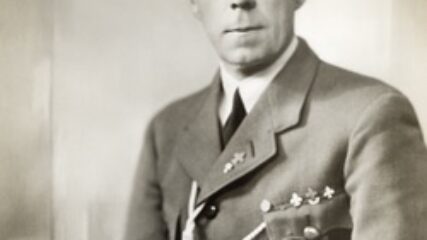
September 17, 1948 Count Folke Bernadotte, a diplomat sent by the United Nations to mediate between Israel and the Arabs during the War of Independence, is assassinated in Jerusalem by members of Lehi (the Stern…
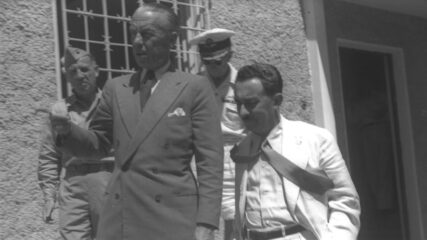
May 20, 1948 Count Folke Bernadotte is appointed by the U.N. Security Council as the mediator for Middle East peace efforts five days into the Israeli War of Independence. Bernadotte was born in Sweden in…
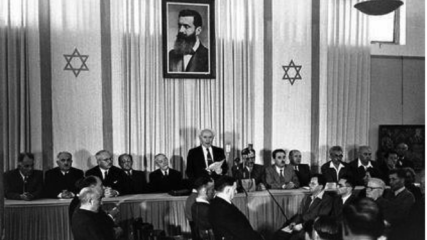
On Friday afternoon in the Tel Aviv Museum, David Ben-Gurion, chairman of the Provisional State Council, declares Israel’s independence. The United States is the first country to recognize the new and already besieged state of Israel.

The second secret meeting between the two is a last-ditch effort to persuade Transjordan to stay out of an impending war with the soon-to-be declared State of Israel.
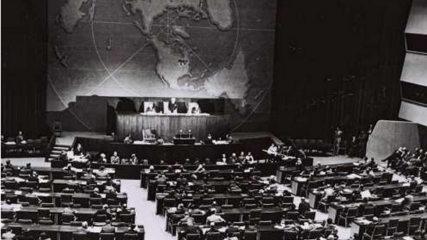
The United Nations General Assembly passes Resolution 181 by a vote of 33-13 with 10 abstentions. The Resolution recommended the creation of separate Arab and Jewish states in Palestine, linked by an economic union.
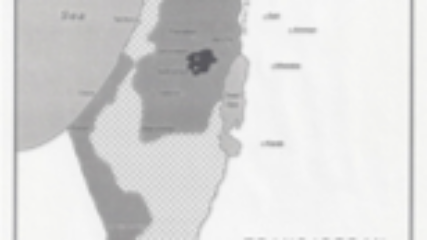
David Ben-Gurion, the chairman of the Executive of the Jewish Agency since 1935, formally accepts the partition plan proposed by the United Nations Special Committee on Palestine (UNSCOP).
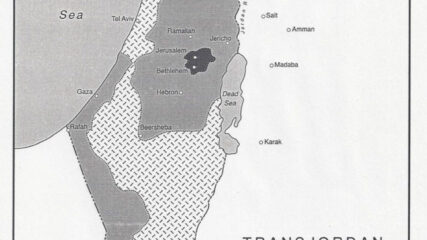
September 29, 1947 The Arab Higher Committee for Palestine formally rejects the U.N. Special Committee on Palestine’s partition plan, which advocates for the division of the land into a separate Jewish and Arab states and…
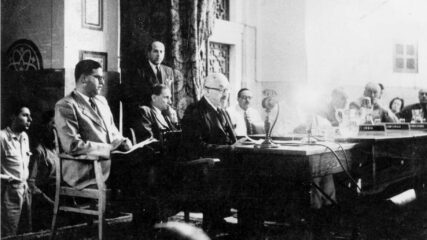
The United Nations had set up UNSCOP in April 1947. Its purpose, like previous commissions that visited Palestine, is to investigate underlying causes for communal unrest and to make political recommendations about curtailing violence.
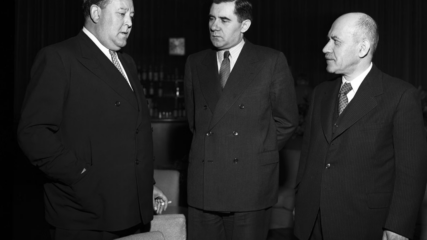
Soviet Foreign Minister Andrei Gromyko proposes a unitary state for Palestine, but vows to support partition if it is deemed the only workable solution.
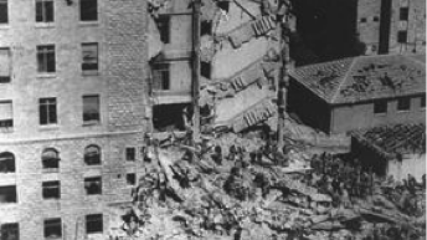
Members of the Irgun, a Jewish military organization that is absorbed into the IDF during the 1948 War, bomb the British administrative headquarters in Palestine, based in the King David Hotel in Jerusalem. Twenty-eight British, forty-one Arabs, and seventeen Jews are killed.
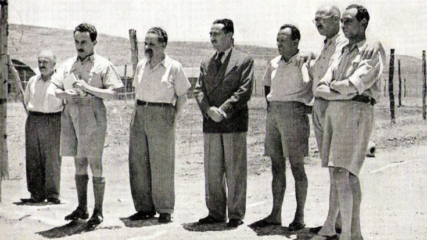
November 1, 1945 The newly formed Jewish Resistance Movement sets off explosions at more than 150 sites along the railway system of British Mandatory Palestine and blows up three British gunboats in the Jaffa and…
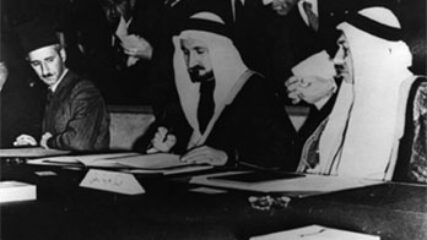
The Arab League Constitution is signed in a ceremony marked by speeches from representatives of each of the six signatory states.
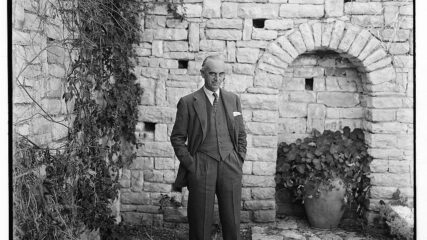
Rattled by numerous attempts on his life, and fearing for the safety of his family, MacMichael steps down in August 1944.

The 1939 White Paper signaled Britain’s readiness to relegate the Jews in Palestine to minority status in a future majority-Arab state.
Dive in, or choose a pathway: Topics, Types, Eras and/or Languages. Explore robust content. Come back often for more.